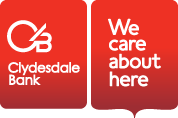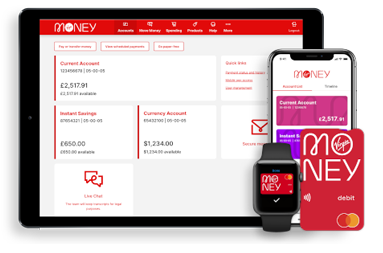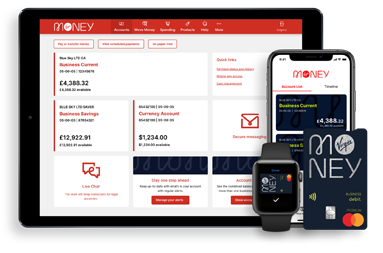Annual statement
Credit cards
Your annual statement is designed to show how you’ve used your Clydesdale Bank credit card over the last 12 months and to help you manage your finances.
It's intended to show what type of transactions you've made, how much you've spent, and any fees and interest you've incurred using your credit card over the last year.
Here are the answers to some common questions about annual statements.
-
What do I need to do with the annual statement?
The annual statement is for information only to give you an overview of your spending. No action is required.
Will I still receive a monthly statement?
Yes, the annual statement is separate from your regular monthly statement, which you will continue to receive as normal.
When will I receive my annual statement?
Your annual statement will be sent to you every year within a month of the anniversary of the date that you first opened your credit card account. This is irrespective of whether we have replaced your card due to it being lost/stolen/damaged or renewed.
Can I opt out of receiving an annual statement?
Yes you can. All you need to do is call us on the number quoted on your statement and we will be happy to help. Although we do think it is a great way to review your spending over the last 12 months.
Where can I find details of the transactions?
For full details of any of your transactions over the last year, please refer to the relevant monthly statement.
How do I get a copy of a previous monthly statement?
A copy statement can be ordered at a charge of £5 per statement. Please contact customer services – the number is on your latest statement.
I pay in full every month, why don’t my spending and payments totals match?
The information on your annual statement covers all transactions and payments which show on the monthly statements issued between the statement period indicated. This means that all payments received, including those in payment for transactions made prior to the annual statement, will be included in the payments total. Similarly, there may be transactions included for which a payment has not yet been made.
How do I understand the cost of using my card abroad?
Non-sterling transaction fees are shown separately as 'Charges for overseas transactions'.
I've been charged Late payment fees - how can I prevent these?
The date your payment is due is clearly shown on your monthly credit card statement. The easiest way to prevent any Late Fees being charged is to set up a Direct Debit. You can do this by contacting Customer Services - the number is on your latest statement.
I am having difficulty making my payments, how can you help?
If you find yourself in financial difficulties, you should let us know as soon as possible by contacting customer services - the number is on your latest statement. We will do all we can to help you. The sooner we discuss your problems, the easier it will be for both of us to find a solution.
What is the credit limit on my account?
Your current credit limit can be found on your most recent monthly credit card statement or you can contact customer services - the number is on your latest statement.
What is the interest rate applied to my account?
Your current interest rate can be found on your most recent monthly credit card statement. This is a variable rate and may have changed during the course of the year. We will have notified you of any changes.
Where can I find further information?
Further information on annual credit card statements can be found on the Money Advice Service website www.moneyadviceservice.org.uk.
You can find impartial information and guidance on money matters on the “MoneyHelper” website.
Clydesdale Bank is covered by the Financial Services Compensation Scheme (FSCS), Find out more.


